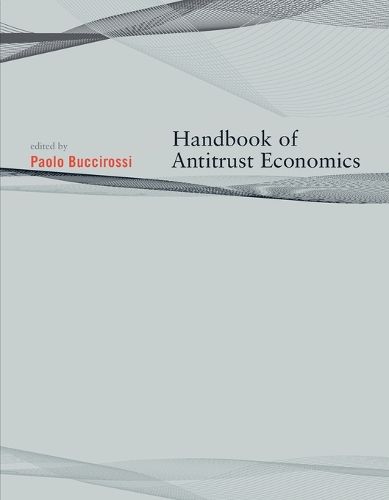Readings Newsletter
Become a Readings Member to make your shopping experience even easier.
Sign in or sign up for free!
You’re not far away from qualifying for FREE standard shipping within Australia
You’ve qualified for FREE standard shipping within Australia
The cart is loading…






This book features experts who examine the application of economic theory to antitrust issues in both the United States and Europe, discussing mergers, agreements, abuses of dominance, and the impact of market features.Over the past twenty years, economic theory has begun to play a central role in antitrust matters. In earlier days, the application of antitrust rules was viewed almost entirely in formal terms; now it is widely accepted that the proper interpretation of these rules requires an understanding of how markets work and how firms can alter their efficient functioning. The Handbook of Antitrust Economics offers scholars, students, administrators, courts, companies, and lawyers the economist’s view of the subject, describing the application of newly developed theoretical models and improved empirical methods to antitrust and competition law in both the United States and the European Union. (The book uses the U.S. term antitrust law and the European competition law interchangeably, emphasizing the commonalities between the two jurisdictions.) After a general discussion of the use of empirical methods in antitrust cases, the Handbook covers mergers, agreements, abuses of dominance (or unilateral conducts), and market features that affect the way firms compete. The chapters examine such topics as analyzing the competitive effects of both horizontal and vertical mergers, detecting and preventing cartels, theoretical and empirical analysis of vertical restraints, state aids, the relationship of competition law to the defense of intellectual property, and the application of antitrust law to bidding markets, network industries, and two-sided markets.
$9.00 standard shipping within Australia
FREE standard shipping within Australia for orders over $100.00
Express & International shipping calculated at checkout
This book features experts who examine the application of economic theory to antitrust issues in both the United States and Europe, discussing mergers, agreements, abuses of dominance, and the impact of market features.Over the past twenty years, economic theory has begun to play a central role in antitrust matters. In earlier days, the application of antitrust rules was viewed almost entirely in formal terms; now it is widely accepted that the proper interpretation of these rules requires an understanding of how markets work and how firms can alter their efficient functioning. The Handbook of Antitrust Economics offers scholars, students, administrators, courts, companies, and lawyers the economist’s view of the subject, describing the application of newly developed theoretical models and improved empirical methods to antitrust and competition law in both the United States and the European Union. (The book uses the U.S. term antitrust law and the European competition law interchangeably, emphasizing the commonalities between the two jurisdictions.) After a general discussion of the use of empirical methods in antitrust cases, the Handbook covers mergers, agreements, abuses of dominance (or unilateral conducts), and market features that affect the way firms compete. The chapters examine such topics as analyzing the competitive effects of both horizontal and vertical mergers, detecting and preventing cartels, theoretical and empirical analysis of vertical restraints, state aids, the relationship of competition law to the defense of intellectual property, and the application of antitrust law to bidding markets, network industries, and two-sided markets.